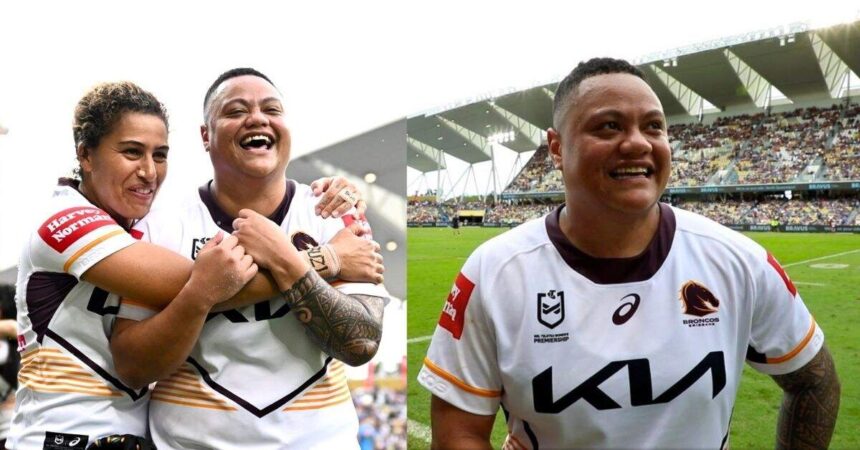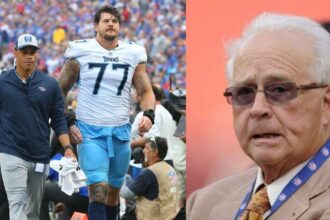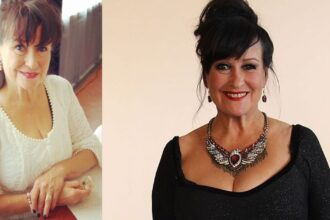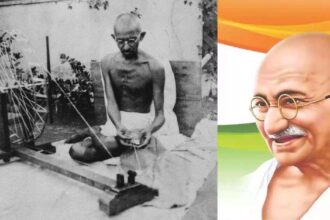Rugby star Mele Hufanga has recently faced questions and speculation about her gender identity. While rumors have circulated suggesting Hufanga may be transgender, the athlete has not publicly addressed or confirmed these assumptions. This has sparked broader conversations around gender, identity assumptions, and promoting acceptance.
As Hufanga’s profile has risen with her athletic accomplishments, some have questioned her gender based on her physical appearance and deep voice. However, one’s external characteristics do not dictate gender identity. Outward judgment of how feminine or masculine someone appears promotes regressive stereotypes. Identity goes far beyond superficial perceptions.
What does it mean to be transgender?
Transgender people have a gender identity that differs from the sex they were assigned at birth. A transgender woman was assigned male at birth but identifies and lives as a woman. A transgender man was assigned female but identifies and lives as a man.
Around 1 million adults in America identify as transgender. Everyone deserves the freedom to live authentically as their true self. Legal rights and societal acceptance of transgender individuals have grown. However, discrimination and misunderstanding persist.
High-profile transgender athletes like Lia Thomas have confronted backlash and accusations. yet focusing on physical differences distracts from the humanity of trans people. Eligibility policies in sports are evolving to be more inclusive while considering competitive fairness. But most importantly, we must affirm transgender lives.
Should we speculate about people’s gender?
Assuming someone’s gender based on how they look or sound shows disrespect. Gender manifests itself in vastly diverse ways. Judging people by rigid standards of femininity and masculinity harms individuals who don’t fit neatly into those boxes. It perpetrates stigma against LGBTQ+ communities.
Unless someone directly shares their gender identity, it remains a deeply personal matter. Making presumptions or spreading rumors is unethical. We cannot truly know someone’s inner world and path based only on external factors. Everyone deserves privacy and the right to come out on their own terms.
Mele Hufanga’s background
Mele Hufanga is a 28-year-old rugby player from New Zealand. She competes internationally in both rugby union (for Tonga) and rugby league (for New Zealand).
In rugby union, Hufanga starred for provincial teams Auckland and Counties Manukau. She captained the Tongan national team in 2022. In rugby league, she emerged as a try-scoring threat for the Kiwi Ferns national team.
Her athletic career has included representing Tonga at the Rugby League World Cup. She signed with the elite Brisbane Broncos club for the 2023 NRLW season in Australia. Beyond sports, she has partnered with her brother on health and fitness initiatives for Pacific Islander communities.
Is Mele Hufanga Trans or Woman? – Spread Kindness
Hufanga has faced insensitive questions on social media about her gender based on her physical stature and deep voice. However, she identifies as a woman and should be accepted as such. Judging people by their outward appearance promotes harmful assumptions.
In a recent interview, Hufanga shared a story of discrimination she faced earlier in her rugby career. She was made to feel lesser than other players. The experience still affects her self-confidence today. This underscores the lasting impact words and actions can have.
Promoting acceptance for all people should be the priority. Hufanga emphasizes kindness and compassion as core values she strives to live by and impart to younger generations. She uses her platform to speak out against bullying and marginalization.
We must listen to and uplift marginalized voices. Asking inappropriate questions about someone’s identity and living according to narrow definitions of gender helps no one.
Key takeaways on gender diversity
- Assuming someone’s gender identity based on superficial factors is unethical. Gender manifests itself in many forms. Judging people by limited standards of femininity/masculinity perpetuates stigma.
- Transgender people deserve equal rights and societal inclusion. Discrimination persists, but acceptance is growing. High-profile trans athletes are expanding awareness.
- Mele Hufanga is a star rugby player who competes for Tonga and New Zealand. She identifies as a woman, though some have questioned her gender based on appearance.
- We should focus on spreading kindness, compassion, and acceptance for all people regardless of gender. Hufanga herself prioritizes these values. Judging identities helps no one.
Gender diversity exists across infinite spectrums. We must listen to people’s lived experiences and honor their right to be their true selves. Progress requires expanding our mindsets beyond reductive binary categories. Mele Hufanga’s platform can raise awareness around identity, ethics, and promoting inclusive communities.
Frequently Asked Questions (FAQs)
1. Is Rugby Player Mele Hufanga transgender?
Mele Hufanga has not publicly addressed any speculation about being transgender. She identifies as a woman, though some have questioned her gender based on her appearance and voice. Assuming someone’s gender identity is unethical.
2. What rugby positions does Mele Hufanga play?
In both rugby codes, Hufanga often plays center which requires speed, power, and tackling ability. She also sometimes plays on the wing. Her athleticism translates well between the two sports.
3. What teams has Mele Hufanga played for?
In rugby union, she has represented Auckland and Counties Manukau provincially. In rugby league, she has played for the Kiwi Ferns national team and Ponsonby Ponies club. She recently signed with the Brisbane Broncos.


























